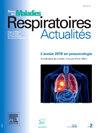肺癌:什么分子生物学评估?
Q4 Medicine
引用次数: 0
摘要
现在,在非小细胞肺癌患者开始任何治疗之前,需要鉴定可靶向的分子改变。分子诊断主要是在组织样本上实现的,但循环肿瘤DNA分析在日常实践中也成为一种有价值的工具。近年来,治疗靶点的多样化在检测方面是一个真正的挑战,需要使用各种分子生物学技术来评估DNA(点突变、小缺失/插入、基因扩增)和RNA(融合转录物)上的靶点。技术的选择取决于临床环境、结果的详尽性、分析敏感性、结果的延迟和成本。为此,与临床医生和病理学家密切讨论是必不可少的。本文章由计算机程序翻译,如有差异,请以英文原文为准。
Cancer du poumon : quel bilan de biologie moléculaire ?
The identification of targetable molecular alterations is now required before starting any treatment in patients with non-small cell lung cancer. Molecular diagnosis is mainly realized on tissue samples but circulating tumor DNA analysis has also become a valuable tool in the daily practice. In recent years, the diversification of therapeutic targets has been a real challenge in terms of detection and requires the use of various molecular biology techniques adapted to assess targets on DNA (point mutations, small deletions/insertions, gene amplification) but also on RNA (fusion transcript). The choice of the technology is directed by the clinical context, the exhaustiveness of the results, the analytical sensitivity, the delay of results and cost. For this, a close discussion with clinicians and pathologists is essential.
求助全文
通过发布文献求助,成功后即可免费获取论文全文。
去求助
来源期刊

Revue des Maladies Respiratoires Actualites
Medicine-Pulmonary and Respiratory Medicine
CiteScore
0.10
自引率
0.00%
发文量
671
 求助内容:
求助内容: 应助结果提醒方式:
应助结果提醒方式:


